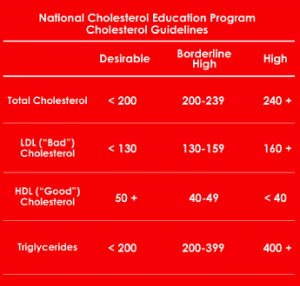Heart Disease: Avoid The Risk Of This Blood-Curdling Predator
It’s a condition that sneaks upon you. You may have it and not even know it.
If you eat red meat, drink more than two alcoholic beverages a day or smoke, then you’re sky-rocketing your risk of getting heart disease. And that could lead to, at the very least, angina (a pain in your chest when you exercise or get stressed out for any reason), or at worst – heart attack, stroke or death. But, what is heart disease, exactly, and how does it get you?In effect, heart disease is a build-up of plaque inside arteries and the valves of your heart. This plaque is directly responsible for preventing your heart from doing its job by thickening and slowing blood flow. In some cases, it will even stop blood flow altogether. And that’s where the danger lies.
If your heart doesn’t work right, your body begins to break down. Kidney failure, stroke and eventually complete heart failure.
Heart disease quietly prevents your heart from pumping efficiently; it’s that simple. If you have it, you’ll notice pains in your chest when performing tasks or exercises. It may even come in the form of something you shrug off like shortness of breath. This is of particular concern for men and women over 49.
When the heart’s primary function, pumping oxygen-rich blood to all your vital organs, is interrupted or slowed by a thickening wall of plaque inside valves and arteries, your body reacts by losing functionality in the kidneys and the brain – not to mention every other organ that uses blood to operate in tip-top shape.
Of all the contributors to heart disease, the greatest risk comes from smoking.
Blood pressure and cholesterol
Two other major players in the heart disease circle are high blood pressure and high cholesterol. Now, cholesterol is necessary for the optimum performance of your body – in moderate amounts. The truth is, your cholesterol needs to be watched, but it is not a primary cause of heart disease. So, don’t put too much stock in it. To the right is a chart that tells you what numbers are good and what numbers are bad.
To knock a few points off of your blood pressure, reduce your salt intake and don’t stress out! Buy fresh or frozen vegetables and stay away from pre-packaged meals or frozen dinners – these tend to have very high levels of salt. You should not be eating more than 2,400 milligrams of salt per day. And to help rid your body of excess salt – have a banana. 3,500 milligrams of potassium each day can flush your body of unwanted salt like magic. Don’t like bananas? You can get your daily dose of potassium from cantaloupe, yogurts, and spinach too.
Men vs. women
No. This is not about a battle of the sexes. The risk of heart disease differs somewhat for men and women. But, heart disease is a leading cause of death for both. One major difference is that women tend to develop heart disease an average of 10 years later than men. That said, the prognosis is usually quite a bit worse.
Some of the symptoms that men and women experience as heart disease progresses may also differ. We share the chest pressure and angina that comes from heart disease as well as the shortness of breath and lethargy, but women may also experience nausea, headaches and jaw pain. So, it’s important to have yourself checked out when you experience any of these discomforts – especially if you’re 49 years or older.
Overall, men are at greater risk of getting heart disease until women reach menopause. At this stage, men and women are at equal risk.
Heart disease is a silent predator that creeps up on us and strikes when we don’t take care of our bodies. The heart is the most vital of the vital organs and needs to be healthy, with Teflon-like smoothness in its valves and arteries; if not, it just won’t work right, and as shown here, this could lead to a very grave outlook.
The good news is there’s always something you can do – it’s never too late to get healthy, stay healthy and reverse the damaging effects of heart disease. Preventative measures include: a healthy diet, proper stress management, NO smoking, no more than one to two alcoholic drinks per day and good old fashioned exercise. Fact is, heart disease doesn’t have to be a threat. It can be reversed. And all you have to do is adopt and maintain a healthy, happy life. You can do it – and Home Cures That Work will help you every step of the way.




























